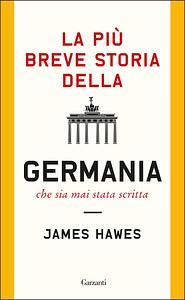You need to sign in or sign up before continuing.
Take a photo of a barcode or cover
I stopped reading on page 28 when I discovered two gross factual errors. Although I am not a historian, it was obvious to me that the author had made errors in his description of the origins of Maximinus Thrax and in the notion that Germanic tribes migrated without their women.
First, Howes states that Maximinus Thrax is of semi-Germanic descent, which is inaccurate. Maximinus was a Roman emperor, and while his origins and ethnicity remain a matter of debate, the claim of his semi-Germanic origin is not supported by historical sources. Most of the sources say he was semi-Dacian.
Second, Howes proposes the theory that Germanic tribes migrated without their women. This assumption is unsupported by historical sources and seems unlikely, given conventional wisdom about the migration of peoples.
It seems to me that the author passes these assumptions off as facts, which raises doubts about his methods and approach to historical scholarship. It gives the impression that he may be fitting historical facts to his ideas and theories, which in my opinion, is not an honest and accurate representation of history.
I would encourage future readers of this book to approach it with critical thinking and verify information from other sources.
First, Howes states that Maximinus Thrax is of semi-Germanic descent, which is inaccurate. Maximinus was a Roman emperor, and while his origins and ethnicity remain a matter of debate, the claim of his semi-Germanic origin is not supported by historical sources. Most of the sources say he was semi-Dacian.
Second, Howes proposes the theory that Germanic tribes migrated without their women. This assumption is unsupported by historical sources and seems unlikely, given conventional wisdom about the migration of peoples.
It seems to me that the author passes these assumptions off as facts, which raises doubts about his methods and approach to historical scholarship. It gives the impression that he may be fitting historical facts to his ideas and theories, which in my opinion, is not an honest and accurate representation of history.
I would encourage future readers of this book to approach it with critical thinking and verify information from other sources.
informative
reflective
medium-paced
Clearly written, easy to follow, enjoyable to read. My one complaint is that the maps were nearly illegible because the font was minuscule and only supposedly-different shades of grey were used.
challenging
informative
reflective
fast-paced
It still baffles me how much the past affects our modern civilization. How everything connects to explain how countries and cultures shape differently.
And Germany is one of the best and most recent examples of that, by undeniably standing out within the European context, both for good and bad reasons. I loved how this book helped me connect a lot of dots through this country’s history.
And Germany is one of the best and most recent examples of that, by undeniably standing out within the European context, both for good and bad reasons. I loved how this book helped me connect a lot of dots through this country’s history.
challenging
informative
medium-paced
i can't follow ancient history with roman stuff and I already knew modern stuff from alevel
plus not a very rigorous history as it was aiming to make a point (east elbia = bad) and not genuinely an account
plus not a very rigorous history as it was aiming to make a point (east elbia = bad) and not genuinely an account
informative
reflective
fast-paced
emotional
fast-paced
informative
medium-paced
Mislim da je ovo najnovija knjiga koju sam pročitala. Posveta je dirljiva, a zahvalnica na kraju knjige pokazuje koliko autor voli svoju porodicu, koja se razumije u istoriju Njemačke.
Knjiga je korisna za one, koji žele da saznaju osnovne događaje, a da ne čitaju nadugačko i naširoko o njima. Sve ovo sam znala od ranije, a da nije tako, morala bih o svakoj ličnosti i svakom događaju, koji se pominju, čitati dodatne izvore. Knjigu sam i uzela kako bih ponovila gradivo. Svidjelo mi se što se u ovom pregledu njemačke istorije može saznati ponešto i o dešavanjima iz prošle decenije, a to nisam nalazila u drugim knjigama, te poređenja Njemačke iz ranijih perioda sa nekim državama i događanjima koja su bliža i poznatija novijim generacijama. Oduševile su me i mape, te posteri i karikature koje su pratile tekst.
Iznenadila me je činjenica da je autor knjige studirao njemački jezik. Nadam se da ću imati priliku da pročitam još neke od njegovih knjiga.
P.S. Zamjerka izdanju su slova koja fale na nekoliko mjesta.
Knjiga je korisna za one, koji žele da saznaju osnovne događaje, a da ne čitaju nadugačko i naširoko o njima. Sve ovo sam znala od ranije, a da nije tako, morala bih o svakoj ličnosti i svakom događaju, koji se pominju, čitati dodatne izvore. Knjigu sam i uzela kako bih ponovila gradivo. Svidjelo mi se što se u ovom pregledu njemačke istorije može saznati ponešto i o dešavanjima iz prošle decenije, a to nisam nalazila u drugim knjigama, te poređenja Njemačke iz ranijih perioda sa nekim državama i događanjima koja su bliža i poznatija novijim generacijama. Oduševile su me i mape, te posteri i karikature koje su pratile tekst.
Iznenadila me je činjenica da je autor knjige studirao njemački jezik. Nadam se da ću imati priliku da pročitam još neke od njegovih knjiga.
P.S. Zamjerka izdanju su slova koja fale na nekoliko mjesta.




